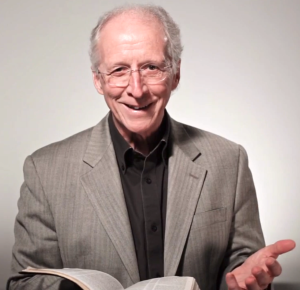Text: Acts 21:1-14
Paul was a world-shaker, a passionate and resolute man.That much is clear. What is not clear is the question of whether or not he was defying God’s warnings in seeking to go to Jerusalem.

Debate: Is the Quran a Book of Peace? Shabir Ally (Muslim) vs. David Wood (Christian)
Is the Quran a book of peace? Is Islam a religion of peace? Did Muhammad preach a message of peace and tolerance? In this debate, Shabir Ally (Muslim) and David Wood (Christian) scrutinize a variety of Quran verses to determine whether the Islam commands Muslims to live in peace with unbelievers.
Is the Bible a book of peace? Christians point to Jesus’ commands to “Love your neighbor as yourself” and “Love your enemies and pray for those who persecute you” to prove that Christianity is a religion of peace. However, the Bible also contains reports of Joshua invading the land of Canaan, Saul fighting the Amalekites, etc. So what’s the Biblical position on peace and violence? In this debate, David Wood and Shabir Ally go through the text to get to the truth.
 Dr. John Piper in an article entitled “Saying What You Believe Is Clearer Than Saying “Calvinist”” writes:
Dr. John Piper in an article entitled “Saying What You Believe Is Clearer Than Saying “Calvinist”” writes:
We are Christians. Radical, Bible-saturated, Christ-exalting, God-centered, mission-advancing, soul-winning, church-loving, holiness-pursing, sovereignty-savoring, grace-besotted, broken-hearted, happy followers of the omnipotent, crucified Christ. At least that’s our imperfect commitment.
In other words, we are Calvinists. But that label is not nearly as useful as telling people what you actually believe! So forget the label, if it helps, and tell them clearly, without evasion or ambiguity, what you believe about salvation.
If they say, “Are you a Calvinist?” say, “You decide. Here is what I believe . . .”
I believe I am so spiritually corrupt and prideful and rebellious that I would never have come to faith in Jesus without God’s merciful, sovereign victory over the last vestiges of my rebellion. (1 Corinthians 2:14; Ephesians 2:1–4; Romans 8:7).
I believe that God chose me to be his child before the foundation of the world, on the basis of nothing in me, foreknown or otherwise. (Ephesians 1:4–6; Acts 13:48; Romans 8:29–30; 11:5–7)
I believe Christ died as a substitute for sinners to provide a bona fide offer of salvation to all people, and that he had an invincible design in his death to obtain his chosen bride, namely, the assembly of all believers, whose names were eternally written in the book of life of the Lamb that was slain. (John 3:16; John 10:15; Ephesians 5:25; Revelation 13:8)
When I was dead in my trespasses, and blind to the beauty of Christ, God made me alive, opened the eyes of my heart, granted me to believe, and united me to Jesus, with all the benefits of forgiveness and justification and eternal life. (Ephesians 2:4–5; 2 Corinthians 4:6; Philippians 2:29; Ephesians 2:8–9; Acts 16:14; Ephesians 1:7; Philippians 3:9)
I am eternally secure not mainly because of anything I did in the past, but decisively because God is faithful to complete the work he began—to sustain my faith, and to keep me from apostasy, and to hold me back from sin that leads to death. (1 Corinthians 1:8–9; 1 Thessalonians 5:23–24; Philippians 1:6; 1 Peter 1:5; Jude 1:25; John 10:28–29; 1 John 5:16)
Call it what you will, this is my life. I believe it because I see it in the Bible. And because I have experienced it. Everlasting praise to the greatness of the glory of the grace of God!